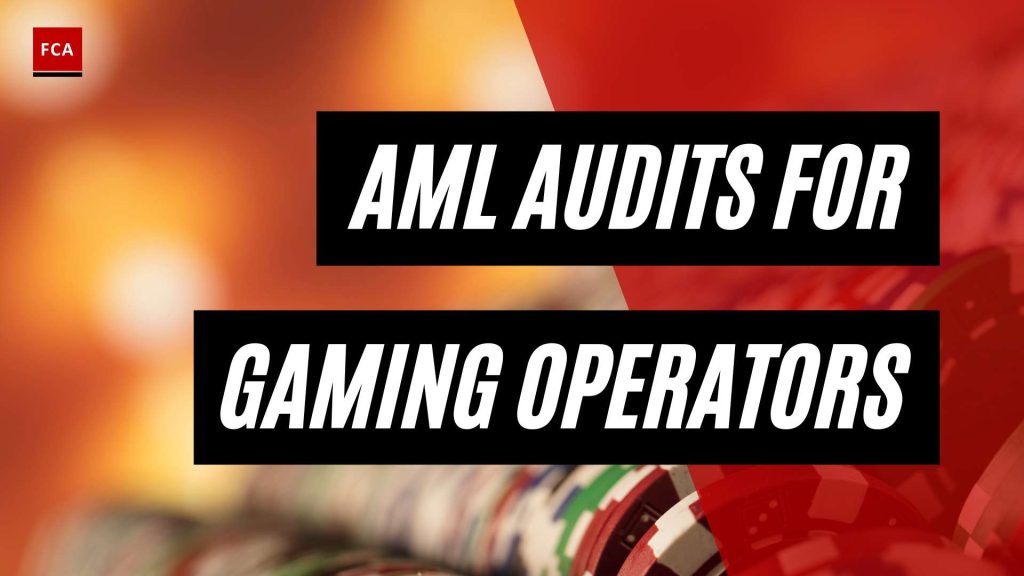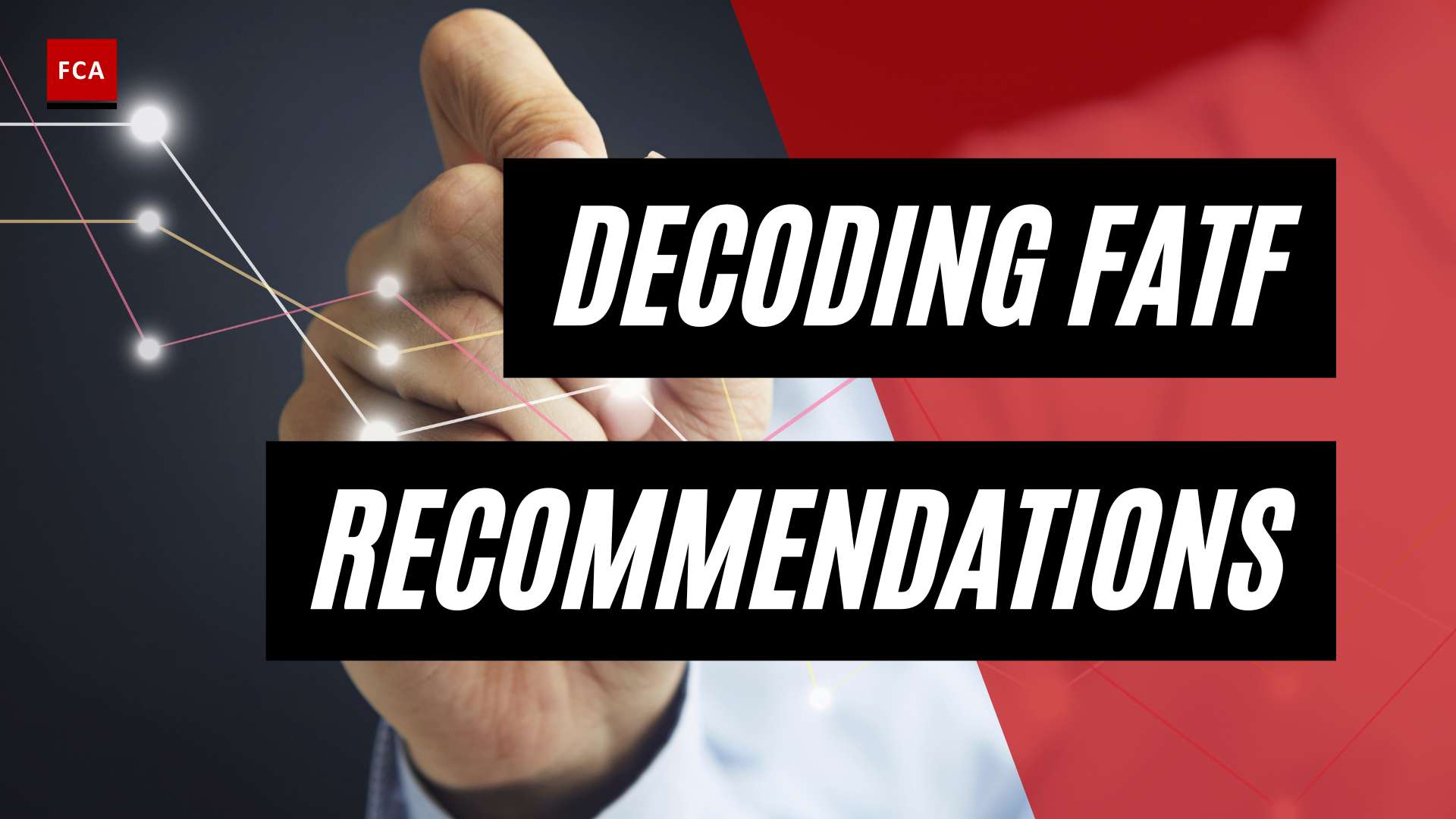The Importance of AML Audits for Gaming Operators
In the gaming industry, AML audits play a crucial role in ensuring compliance with anti-money laundering (AML) regulations. Understanding the AML regulations specific to the gaming sector and recognizing the risks of money laundering are essential for gaming operators.
Understanding AML Regulations in the Gaming Industry
AML regulations in the gaming industry are designed to prevent money laundering and other financial crimes through gaming platforms. These regulations aim to detect and deter illicit activities such as terrorist financing, fraud, and the laundering of proceeds from criminal activities. Gaming operators must adhere to these regulations to maintain the integrity of their operations and protect the industry from being exploited for illicit purposes.
To comply with AML regulations, gaming operators need to implement robust AML programs that include comprehensive customer due diligence and Know Your Customer (KYC) procedures. These procedures involve verifying the identity of customers, assessing their risk profiles, and monitoring their transactions for any suspicious activities. By adhering to these regulations, gaming operators contribute to the overall integrity and security of the gaming industry.
The Risks of Money Laundering in the Gaming Sector
The gaming sector has historically been vulnerable to money laundering and other criminal activities. Online casinos, bookmakers, and other gambling institutions have been used as vehicles for money laundering due to the high volume of transactions and the potential for anonymity. Criminals may exploit these platforms to convert illicit funds into legitimate-looking winnings or to simply hide the origins of their funds.
To mitigate these risks, AML regulations have been implemented to ensure that gaming operators have effective systems and controls in place to prevent money laundering. By conducting AML audits, gaming operators can assess and enhance their AML compliance programs, identify any weaknesses or vulnerabilities, and take appropriate measures to mitigate the risks associated with money laundering.
By proactively addressing the risks of money laundering in the gaming sector and complying with AML regulations, gaming operators can protect their businesses, maintain the trust of their customers, and contribute to the overall integrity of the gaming industry.
For more information on AML best practices and compliance measures specific to the gaming industry, please visit our article on gaming industry AML best practices.
Components of Effective AML Audits for Gaming Operators
To ensure effective anti-money laundering (AML) compliance in the gaming industry, conducting thorough AML audits is essential. These audits help gaming operators assess their AML controls, identify potential weaknesses, and implement remedial measures to enhance their AML compliance. By conducting these audits regularly, gaming operators can demonstrate their commitment to combating money laundering and adhering to regulatory requirements, thereby building trust with stakeholders and regulatory authorities.
Customer Due Diligence and KYC Procedures
One of the fundamental components of AML audits for gaming operators is the evaluation of customer due diligence (CDD) and Know Your Customer (KYC) procedures. Gaming operators are obliged to conduct KYC procedures as part of AML regulations, which may include submitting official IDs for verification. These procedures are crucial for detecting and preventing money laundering and other financial crimes in the gaming industry.
KYC procedures involve verifying customer identities and assessing their risk of potential money laundering activities. While specific KYC requirements for gaming operators may vary by jurisdiction, there are fundamental elements generally expected to be included in the KYC procedures. These include:
- Gathering and verifying customer identification information, such as full name, date of birth, and address.
- Assessing the risk level associated with each customer based on factors such as their location, transaction patterns, and source of funds.
- Monitoring and updating customer information on an ongoing basis to ensure accuracy and compliance with regulatory requirements (Sanction Scanner).
During AML audits, gaming operators’ KYC files and procedures are reviewed to ensure that they comply with regulatory standards and adequately mitigate the risk of money laundering and other illicit activities.
Transaction Monitoring and Reporting Suspicious Activities
Another critical component of AML audits for gaming operators is the evaluation of transaction monitoring systems and the reporting of suspicious activities. Gaming and gambling companies are required to have robust AML policies in place, including transaction monitoring and reporting suspicious activities to relevant authorities. Transaction monitoring involves the continuous monitoring of customer transactions to identify any unusual or suspicious patterns that may indicate potential money laundering.
AML audits assess the effectiveness of gaming operators’ transaction monitoring systems by reviewing the following aspects:
- Adequacy of thresholds and rules set for detecting suspicious transactions.
- Timeliness and accuracy of transaction monitoring alerts generated by the system.
- Processes in place for investigating and escalating suspicious activity reports.
- Compliance with regulatory requirements for reporting suspicious activities to the appropriate authorities (Sanction Scanner).
By reviewing these components, AML audits help identify gaps in transaction monitoring and reporting processes, allowing gaming operators to implement necessary corrective actions and strengthen their overall AML program.
In conclusion, effective AML audits for gaming operators encompass evaluating customer due diligence and KYC procedures, as well as transaction monitoring and reporting suspicious activities. These audits play a crucial role in assessing and enhancing AML controls within the gaming industry, ensuring compliance with regulatory requirements, and mitigating the risk of money laundering and other illicit activities. By conducting regular AML audits, gaming operators demonstrate their commitment to maintaining a secure and transparent gaming environment.
Compliance Obligations for Gaming Operators
To combat money laundering and protect the integrity of the gaming industry, gaming operators must adhere to international AML regulations as well as jurisdiction-specific requirements. These compliance obligations are crucial to identify and prevent illicit activities such as money laundering and terrorist financing within the gaming sector.
International AML Regulations for the Gaming Industry
The global gaming industry is subject to increased regulatory scrutiny, with many countries imposing strict AML regulations on gaming operators. These regulations are designed to prevent money laundering and terrorist financing through gaming platforms. Operators must stay up-to-date with evolving AML requirements to ensure compliance and avoid penalties and legal consequences (Financial Crime Academy).
Compliance with international AML regulations includes implementing robust AML policies and procedures, conducting Know Your Customer (KYC) procedures, monitoring transactions for suspicious activities, and providing ongoing AML training to employees. By complying with these regulations, gaming operators demonstrate their commitment to combating money laundering and maintaining the integrity of the gaming industry.
Jurisdiction-Specific AML Requirements for Gaming Operators
In addition to international regulations, gaming operators must also comply with jurisdiction-specific AML requirements. Each jurisdiction may have its own set of rules and regulations, which operators must understand and adhere to. These requirements may include specific reporting obligations, customer due diligence requirements, and record-keeping obligations.
To ensure compliance with jurisdiction-specific AML requirements, gaming operators must conduct thorough research and engage with regulatory authorities to understand the specific obligations applicable to their operations. By proactively meeting these obligations, gaming operators can effectively contribute to the prevention of money laundering and maintain regulatory compliance within their respective jurisdictions.
By fulfilling these compliance obligations, gaming operators play a vital role in safeguarding the gaming industry from money laundering and other illicit activities. Regularly conducting AML audits helps operators assess their AML controls, identify potential weaknesses, and implement necessary remedial measures to enhance their AML compliance (Financial Crime Academy). Compliance with international and jurisdiction-specific regulations is crucial to maintain the long-term sustainability and integrity of gaming businesses in today’s global regulatory environment.
Conducting AML Risk Assessments in the Gaming Industry
To effectively manage anti-money laundering (AML) risks in the gaming industry, gaming operators must conduct thorough risk assessments. These assessments enable operators to identify and mitigate money laundering risks specific to their operations. There are two key aspects of conducting AML risk assessments: identifying money laundering risks in gaming operations and adapting AML controls to changing risks.
Identifying Money Laundering Risks in Gaming Operations
A crucial step in managing AML risks in the gaming industry is identifying potential money laundering risks associated with gaming operations. Gaming operators must examine various factors to determine the likelihood and potential impact of money laundering activities. These factors may include:
- Customer profiles: Assessing the types of customers, their backgrounds, and their financial activities can help identify potential high-risk individuals.
- Transaction patterns: Analyzing transaction volumes, frequencies, and patterns can reveal suspicious activities, such as structuring transactions to avoid detection.
- Geographic locations: Evaluating the geographical locations of players and their financial activities can highlight regions with higher money laundering risks.
- Types of games offered: Certain games may attract a higher risk of money laundering due to their characteristics, such as high-stakes gambling.
By understanding and analyzing these factors, gaming operators can develop targeted AML controls to mitigate the identified risks. This proactive approach is crucial for maintaining compliance and minimizing the potential impact of money laundering activities in the gaming industry.
Adapting AML Controls to Changing Risks
Money laundering risks in the gaming industry are not static and can evolve over time. Therefore, it is essential for gaming operators to adapt their AML controls to address changing risks effectively. This involves continuously monitoring and reassessing the effectiveness of existing controls and making necessary adjustments.
Gaming operators should stay updated on industry best practices, regulatory requirements, and emerging trends in money laundering techniques. By doing so, operators can identify new risks and implement appropriate measures to mitigate them.
Moreover, technological advancements play a significant role in adapting AML controls in the gaming industry. AML software and monitoring tools can help detect suspicious activities, analyze transaction patterns, and identify potential money laundering red flags. Regularly reviewing and enhancing these tools ensures that gaming operators can keep up with evolving risks and maintain robust AML programs.
By conducting regular AML risk assessments and adapting controls accordingly, gaming operators can effectively manage money laundering risks in the industry. This proactive approach not only promotes compliance with regulations but also safeguards the integrity and reputation of gaming operators and the broader gaming industry.
To learn more about AML best practices specific to the gaming industry, visit our article on gaming industry AML best practices.
Ensuring Effective AML Programs for Gaming Operators
To maintain effective anti-money laundering (AML) programs, gaming operators must engage in comprehensive audits of their internal controls and AML policies. By conducting these audits, operators can assess the strength of their AML programs, identify areas for improvement, and ensure compliance with regulatory requirements.
Auditing Internal Controls and AML Policies
Auditing internal controls and AML policies is a crucial step in evaluating the effectiveness of a gaming operator’s AML program. The audit should encompass a thorough review of the operator’s AML policies, procedures, and systems to identify any weaknesses or gaps that may exist. This includes:
- Reviewing the operator’s AML policies and procedures to ensure they align with international AML regulations for the gaming industry (source).
- Assessing the operator’s customer due diligence (CDD) and know your customer (KYC) procedures to determine their effectiveness in identifying and verifying the identities of customers.
- Evaluating the operator’s transaction monitoring systems and processes to ensure they are capable of detecting and reporting suspicious activities (source).
- Examining the operator’s record-keeping practices to ensure compliance with record-keeping requirements outlined in AML regulations (source).
- Assessing the training programs provided to employees to ensure they are adequately trained on AML requirements and understand their roles and responsibilities (source).
By conducting thorough audits of internal controls and AML policies, gaming operators can identify areas of improvement and implement necessary changes to strengthen their AML compliance.
Remedial Measures for Strengthening AML Compliance
Once weaknesses or gaps are identified through the audit process, gaming operators should take immediate remedial measures to enhance their AML compliance. Remedial actions may include:
- Updating AML policies and procedures to address identified weaknesses and align with regulatory requirements.
- Enhancing customer due diligence and KYC procedures to ensure thorough identification and verification of customer identities (source).
- Implementing improved transaction monitoring systems and processes to enhance the detection and reporting of suspicious activities (source).
- Providing additional training and awareness programs for employees to enhance their understanding of AML requirements and their roles in preventing money laundering (source).
- Strengthening record-keeping practices to ensure compliance with AML record-keeping requirements.
By implementing remedial measures, gaming operators can address identified weaknesses and enhance their AML compliance, reducing the risk of money laundering activities within the gaming sector.
Ensuring effective AML programs is essential for gaming operators to mitigate the risk of money laundering and comply with regulatory requirements. By regularly auditing internal controls and AML policies and taking remedial measures to address any identified weaknesses, gaming operators can strengthen their AML compliance and maintain integrity within the gaming industry.
Consequences of Non-Compliance with AML Regulations
Ensuring compliance with Anti-Money Laundering (AML) regulations is of utmost importance for gaming operators. Failing to comply with these regulations can result in severe consequences, both legally and financially, as well as significant reputational damage. It is crucial for gaming operators to understand the potential repercussions of non-compliance and take proactive measures to mitigate these risks.
Legal and Financial Penalties for Gaming Operators
Non-compliance with AML regulations can lead to substantial legal and financial penalties for gaming operators. Regulatory authorities have the power to impose fines, sanctions, and other punitive measures. The exact penalties may vary depending on the jurisdiction and the severity of the non-compliance. These penalties can have a significant impact on a gaming operator’s financial stability and operational viability.
Reputational Damage and Loss of Licenses
Non-compliance with AML regulations can also result in severe reputational damage for gaming operators. Negative publicity surrounding money laundering activities can erode customer trust and confidence in the operator’s integrity. This can lead to a decline in customer loyalty, reduced revenue, and potential loss of market share.
Moreover, regulatory bodies may revoke or suspend the operating licenses of gaming operators found to be non-compliant with AML regulations. Losing a license can have dire consequences, including the inability to operate legally in the industry. It can also deter potential business partners and investors from collaborating with the operator, further exacerbating the financial and reputational damage.
To avoid these detrimental outcomes, gaming operators must prioritize AML compliance and take proactive steps to establish robust AML programs. This includes conducting regular AML audits, implementing effective internal controls, and adhering to regulatory requirements. By maintaining a strong compliance framework, gaming operators can minimize the risk of non-compliance and protect their businesses from the legal, financial, and reputational consequences associated with AML violations.
For more information on best practices and guidelines for AML compliance in the gaming industry, refer to our article on gaming industry AML best practices.
The Role of Independent AML Auditors for Gaming Operators
To ensure effective anti-money laundering (AML) compliance within the gaming industry, it is crucial for gaming operators to enlist the services of independent AML auditors. These auditors possess the necessary expertise and experience in AML compliance to evaluate and enhance the AML controls and processes implemented by gaming operators.
Expertise and Experience in AML Compliance
Independent AML auditors bring a wealth of expertise and knowledge in AML compliance to the table. They are well-versed in the intricacies of AML regulations, industry best practices, and the specific challenges faced by gaming operators. By leveraging their experience, auditors can thoroughly assess the AML programs of gaming operators and identify vulnerabilities, weaknesses, and potential areas of improvement.
During the audit process, independent auditors conduct comprehensive reviews of the AML controls and procedures implemented by gaming operators. They evaluate the effectiveness of customer due diligence and know-your-customer (KYC) procedures, transaction monitoring systems, and reporting mechanisms for suspicious activities. Through their expertise, auditors can identify gaps and recommend measures to enhance the AML controls and processes.
Recommendations for Enhancing AML Controls
One of the primary objectives of independent AML auditors is to provide gaming operators with recommendations for strengthening their AML controls. These recommendations are based on industry best practices, regulatory requirements, and the unique risk landscape of the gaming industry.
Auditors may suggest improvements in customer due diligence procedures, such as implementing more rigorous KYC measures and conducting enhanced due diligence for high-risk customers. They may also recommend enhancements to transaction monitoring systems, ensuring that suspicious activities are promptly identified and reported.
Furthermore, auditors may advise gaming operators on the adoption of advanced technologies and AML software solutions tailored for the gaming industry. These tools can facilitate more efficient AML monitoring and reporting, enhancing the overall effectiveness of the AML program.
By implementing the recommendations provided by independent AML auditors, gaming operators can further fortify their AML controls, mitigate money laundering risks, and demonstrate their commitment to AML compliance.
In conclusion, independent AML auditors play a vital role in the gaming industry by evaluating the AML controls and processes of gaming operators. Their expertise and experience enable them to identify weaknesses and provide recommendations for enhancing AML controls. By partnering with independent auditors and implementing their recommendations, gaming operators can strengthen their AML compliance efforts, protect their businesses from illicit financial activities, and maintain trust with stakeholders and regulatory authorities.
For more information on AML best practices in the gaming industry, refer to our article on gaming industry AML best practices.
Exploring Straighteners for Curly Hair
When it comes to straightening curly hair, choosing the right straightener is crucial for achieving the desired results. There are several types of straighteners available in the market, each with their own unique features and benefits. In this section, we will explore three popular options: ceramic straighteners, tourmaline straighteners, and titanium straighteners.
Ceramic Straighteners
Ceramic straighteners are a top choice for individuals with curly hair. These straighteners utilize ceramic plates that heat up quickly and distribute heat evenly across the hair strands. The gentle heat helps to minimize damage and frizz, leaving your hair sleek and smooth.
One of the key advantages of ceramic straighteners is their ability to maintain a consistent temperature, ensuring that your hair is evenly straightened from root to tip. Additionally, the smooth surface of the ceramic plates glides effortlessly through your hair, reducing the chances of snagging or pulling.
Tourmaline Straighteners
Tourmaline straighteners are another excellent option for those with curly hair. These straighteners feature plates infused with tourmaline, a semi-precious gemstone known for its ability to emit negative ions. When heated, these ions help to seal the hair cuticles, locking in moisture and reducing frizz.
The tourmaline plates also generate infrared heat, which penetrates the hair shaft without causing excessive damage. This gentle heating process ensures that your hair remains healthy and shiny, even after repeated use of the straightener.
Titanium Straighteners
For individuals with thick and coarse curly hair, titanium straighteners are often the preferred choice. These straighteners feature plates made from titanium, a lightweight and highly durable metal. Titanium plates heat up quickly and evenly, allowing for efficient straightening of even the most stubborn curls.
One of the main advantages of titanium straighteners is their ability to maintain a stable temperature throughout the styling process. This ensures consistent and long-lasting results, even in humid environments. Additionally, the smooth surface of the titanium plates allows for effortless gliding through the hair, minimizing the risk of damage.
By exploring the different types of straighteners available, you can choose the one that best suits your curly hair needs. Whether you opt for ceramic, tourmaline, or titanium straighteners, remember to prioritize the health and safety of your hair. Experiment with different techniques, products, and styling methods to achieve the best results while keeping your curls happy and healthy.








